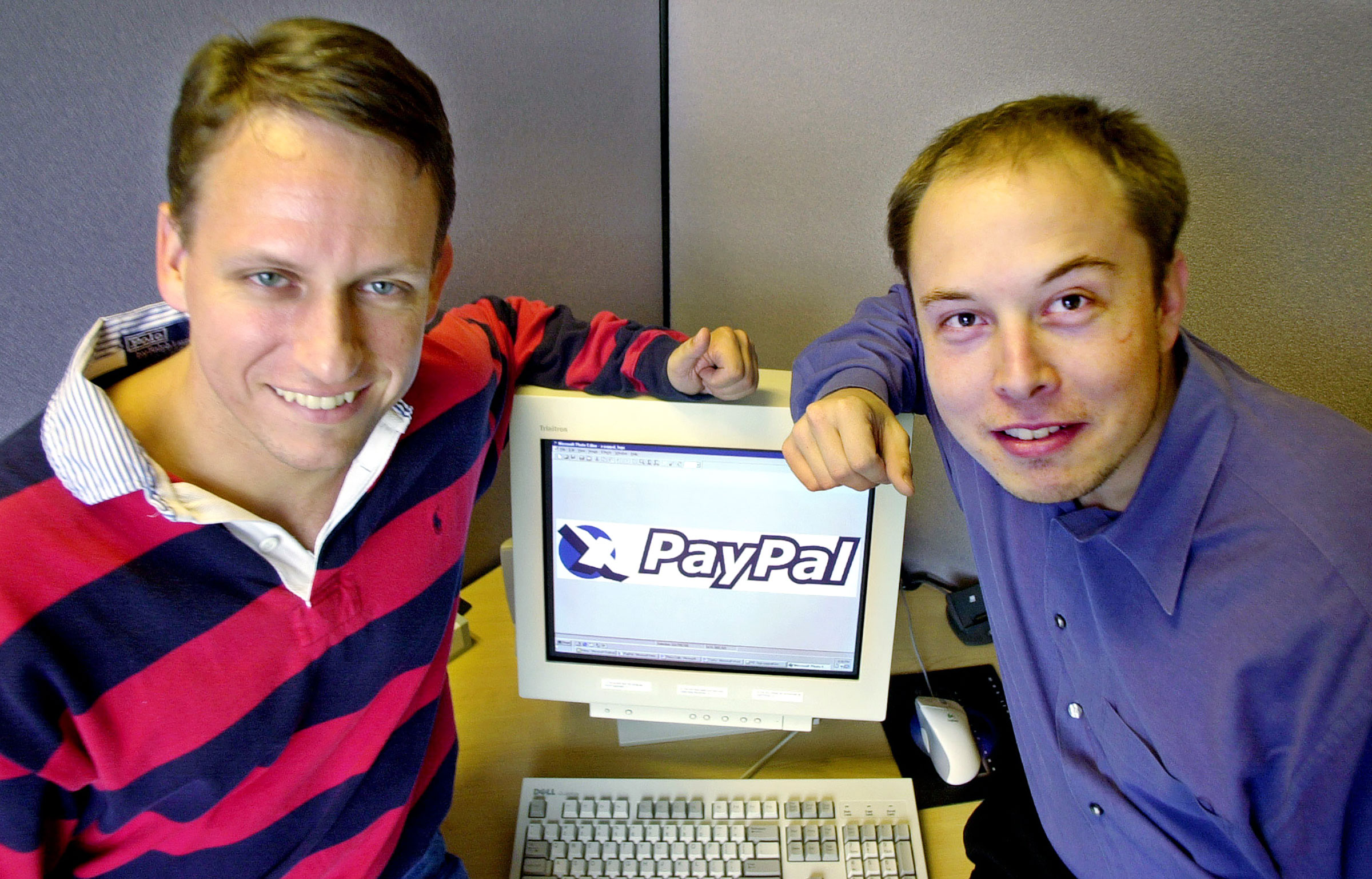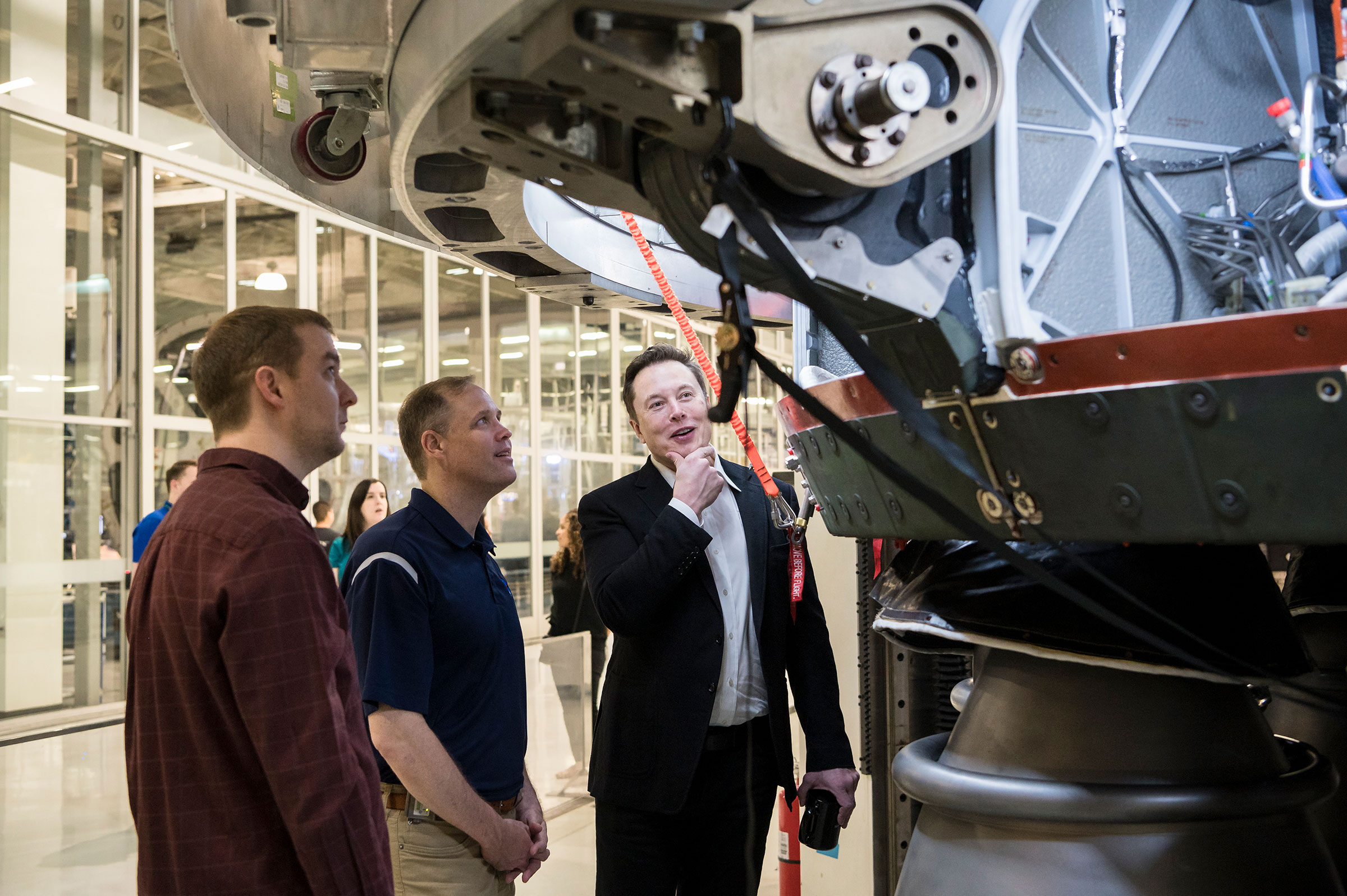With Elon Musk close to claiming a new role as owner of Twitter after a winning bid to purchase it for $44 billion this week, the billionaire entrepreneur can add the social media app to a long list of business ventures he has led, invested in, and supported over his lengthy career. Here’s a timeline of Musk’s most notable business endeavors—both successful and not—over the past three decades.
1995: Zip2
Along with his brother, Musk founded Zip2, an online business directory, as an online alternative to the standard paper yellow pages. (Google would not launch until 1998.) He sold it for over $300 million in 1999 to Compaq Computer Corporation. Musk was ousted as CEO in 1996, however, when the board of directors decided to install a more experienced leader in his stead.
1999: X.com
Musk invested some of his windfall from the Zip2 sale into his next venture: X.com, an online bank, launched with three other co-founders. X.com’s business model was innovative for its time, in that it incentivized sign-ups and eased the process of transferring funds digitally, with no need for mail or traditional banking infrastructure. In an interview with CBS MarketWatch at the time of the launch, Musk explained his business: “There are no minimum balances. You can open an account and receive a $20 promotional offer in your checking account. You can move $8 to your S&P fund, $3 each to your money market and bond fund, and be left with $6 in your checking.”
He went on to expand more philosophically on the new company: “In my view, the Internet had gone through a couple of stages and was ready for another stage,” he said. “The first stage was where people could trust the Internet for information. This was perhaps ’95 or ’96. The second was to trust the Internet for purchases and begin to use credit cards online to buy books, toys, pet food and that kind of thing. I think we’re at the third stage now where people are ready to use the Internet as their main financial repository.”
2000: PayPal

X.com merged with software company Confinity just one year later, forming PayPal, a secure online payments platform with a foundation in payments conducted for PalmPilots. PayPal would go on to be one of his most successful companies; Musk and his partners, including Confinity co-founder Peter Thiel, sold it to eBay in 2002 for a $1.5 billion stock deal. However, it was a rough start. PayPal was named at one point as one of the “worst business ideas” of 1999, and Musk himself was again removed from his role as CEO while on honeymoon in 2000, replaced by the board with Thiel.
After going public on the NASDAQ stock exchange in 2002, eBay snapped up PayPal. They would hold onto PayPal until 2015, spinning it off into a separate entity.
2002: SpaceX

Musk next set his sights on a lofty goal: space exploration, and the future colonization Mars. In the past 20 years, SpaceX has dealt with a series of rocket launch failures and Starship explosions. But it has also become a heavy-hitter in the space industry with a number of records to its name, including being the first private company to send a craft to the International Space Station and send astronauts to orbit. It is known for its reusable rockets.
SpaceX is also behind the development of Starlink, a constellation of satellites intended to offer commercial internet service around the globe.
2002: The Musk Foundation
Founded as a 501(c)3 non-profit organization, the Musk Foundation is one of Musk’s least-talked-about endeavors. Its stated goals including supporting renewable energy and pediatric research and education, and the developing of “safe artificial intelligence to benefit humanity.” Between 2002 and 2018 it handed out around $25 million, about half of that to OpenAI, a company owned by Musk himself. (Since 2012, Musk has also been a signatory of The Giving Pledge, in which many of the world’s richest people have committed to giving away the majority of their wealth at some point.)
2004: Tesla
These days, Musk is perhaps best known for his leadership at Tesla, the electric car company named after famed inventor Nikola Tesla. Valued at over $1 trillion at one point in 2021, Tesla was founded in 2003 by two other men; Musk entered a Series A funding round with an investment of $6.5 million, and eventually took an increasingly active role in the company. He has been CEO since 2008. The Model 3 is the most popular electric car in production today, with over one million units sold globally.
Tesla has come in for its fair share of controversy, however, from dealing with long production and fulfillment delays to safety issues with its vehicles and employee complaints about working conditions and management practices.
2006: SolarCity
Founded by his cousins in 2006, SolarCity received Musk’s patronage from the offset; he was their primary financial backer. A solar energy company that became the leading residential solar installer in the U.S. by the mid-2010s, SolarCity installed solar energy systems that were leased to residential users. Musk, via Tesla, acquired SolarCity in 2016 for $2.6 billion in stock and incorporated it into its operations as Tesla Energy.
2015: OpenAI
Musk co-founded OpenAI as a non-profit in 2015, with a for-profit artificial intelligence research lab component; it was started with a $1 billion collective pledge from its founders. Musk has been open about his interest in developing “friendly” AI that supports humanity, but he ended up resigning from the board in 2018 due to conflicts with Tesla’s AI projects.
2016: Neuralink
Another research endeavor, Musk co-founded Neuralink in 2016 with the goal of working on “brain-machine interfaces,” or BMIs, that can be implanted directly into the body. Neuroscientists have been skeptical of Neuralink’s research and claims. While they currently conduct experiments on animals, they moved plans to begin working on human subjects to 2022.
2016: The Boring Company
Founded with the intention of helping dispel city traffic via underground tunnels as a subsidiary of SpaceX, the Boring Company is one of Musk’s side projects. Its aim: build tunnels. They first experimented by tunneling under the SpaceX factory in California. The Boring Company became an independent entity in 2018, and in 2021 completed a tunnel project in Las Vegas to shuttle visitors beneath the Las Vegas Convention Center. It is currently working on further tunnel projects in Las Vegas for underground transport. Other projects are primarily speculative.
Musk once spoke boldly about an ambitious “Hyperloop” system, creating tunnels across the country to revolutionize and speed up underground mass transport between cities. However, Hyperloop mentions have been scrubbed from the Boring Company’s website.
2022: Twitter
After buying up enough stock to make him a majority shareholder by April 1, Musk made the move to purchase Twitter for $44 billion at the end of April. His plans include making Twitter “better than ever” by “enhancing the product with new features, making the algorithms open source to increase trust, defeating the spam bots, and authenticating all humans.”
More Must-Reads from TIME
- Where Trump 2.0 Will Differ From 1.0
- How Elon Musk Became a Kingmaker
- The Power—And Limits—of Peer Support
- The 100 Must-Read Books of 2024
- Column: If Optimism Feels Ridiculous Now, Try Hope
- The Future of Climate Action Is Trade Policy
- FX’s Say Nothing Is the Must-Watch Political Thriller of 2024
- Merle Bombardieri Is Helping People Make the Baby Decision
Write to Raisa Bruner at [email protected]